This article tells the story of Jelena Dokic's journey from childhood abuse to finding her voice and achieving success. It highlights the lasting impact of silencing experienced by victims of domestic violence and Dokic's courage in overcoming adversity.
There was a time when Jelena Dokic could barely speak. She couldn’t string a sentence together. She couldn’t look people in the eye. Throughout her childhood, her father Damir had kept her quiet with the threat of his fists. She was too scared to risk using her own words and parroted his, instead. He taught her not only that she’d be punished for daring to speak, but also that if she did speak, no one would listen. “I was silenced for my whole life,” she says.
Over decades of abuse, Dokic’s voice all but dried up. It seems like a minor thing beside the bruises, the name-calling and the punishments, but it lasted long after the marks had faded. Silencing doesn’t get much air time in the public conversation about family violence, but almost every victim has experienced it. “Don’t you dare say anything to anyone,” her father told her, “because I’ll kill you.” When someone’s voice is quashed, their sense of self fades to nothing. Even after the physical abuse is over, the ability to express oneself without fear is one of the hardest things to recover.These days, by her own admission, Dokic won’t shut up. It’s a standing joke in the tennis commentary team at Nine (publisher of this masthead) that she could talk underwater. She’s a favourite among audiences because of her sharp insights, both about the game and those who play it. People who’ve had therapy themselves tend to be incisive about others, too. I ask whether volatile Australian talent Nick Kyrgios is misunderstood. “I don’t know if he even knows,” she says. “I don’t know if he knows who he is as a player and as a person yet.” Most Australians are familiar with the story of Dokic’s childhood; some of us watched it unfold, complicit as passive bystanders. Many know about her sporting achievements, which include a No. 4 ranking and reaching the semis at Wimbledon. Fewer, however, understand the magnitude of what she’s achieved since. How, just a decade or so ago, she was broke and bedridden with depression, crushed by the weight of her trauma and robbed of her prize winnings by her father. She was afraid of getting on a plane, afraid of dying, afraid of her own voice. She was scared that shadowy people were following her though the streets. It’s taken momentous courage to put her life back together. And now, she’s in demand on the lucrative speaker circuit. She has a close network of friends. The turning point, she says, was learning to use her voice again. With that power restored, Dokic was unleashed.We meet at the Sheraton Grand Sydney Hyde Park. This column usually invites its guests to lunch, but there is no time for that in Dokic’s whirlwind timetable. She’s sitting primly on a lounge waiting for me, in a stylish navy dress. I introduce myself and that famous, charismatic smile washes over her face. We walk up to the hotel breakfast buffet, where neither of us eats nearly enough to justify the $54 a person cost. We grab toast, eggs and a bit of bacon and salmon before finding a quiet table next to a long glass window. I had worried an hour wasn’t enough, as most guests take a while to warm up. I was nervous, too, about pressing her about her traumatic past in such a short time. I needn’t have worried. The power of speech has returned to Dokic in full force; she is warm, articulate and insightful.We begin by discussing the hectic month of tennis that lies in front of her. She can’t wait. Despite all the trauma infused in her memories of it, and despite the fact she never chose to do it in the first place – it was her father’s idea – the sport is still Dokic’s happy place. “Loved it, even though I went through so much because of it,” she says. “I love hitting balls. I love watching players practise. I’ll do the commentary days and still go out there and watch matches. I’m glad because that’s another thing that could have turned into maybe a bit of hate.” Flashback to Yugoslavia, in 1989. Dokic is six years old and her father, Damir, is inspired by Monica Seles to buy a white tennis racquet for his daughter. He throws balls to her in their apartment courtyard, and she sends them flying back. She’s a natural. Her father, who has never played, becomes a self-styled expert. He’d had disappointments in his own life – an alcoholic father, an abusive mother, frustrated career ambitions – and wants another shot at success through his daughter. He is increasingly obsessive, controlling and cruel. She grows afraid. Her fear drives her to excellence. Reuters Their move to Australia tightens his grip. She leaves her friends behind, and Australian kids bully her. She’s isolated. She trains all the time. She has coaches, but her father is always courtside, glowering and often drunk. When they’re alone, he hits her, pulls her hair, calls her a slut and a whore. She wears long-sleeved shirts to hide the marks on her skin, but they can’t hide it all. People suspect her father is abusing her but, worried the beatings will get worse, she denies everything
Biography Abuse Survivors DOMESTIC ABUSE SILENCING COURAGE RECOVERY TENNIS
Australia Latest News, Australia Headlines
Similar News:You can also read news stories similar to this one that we have collected from other news sources.
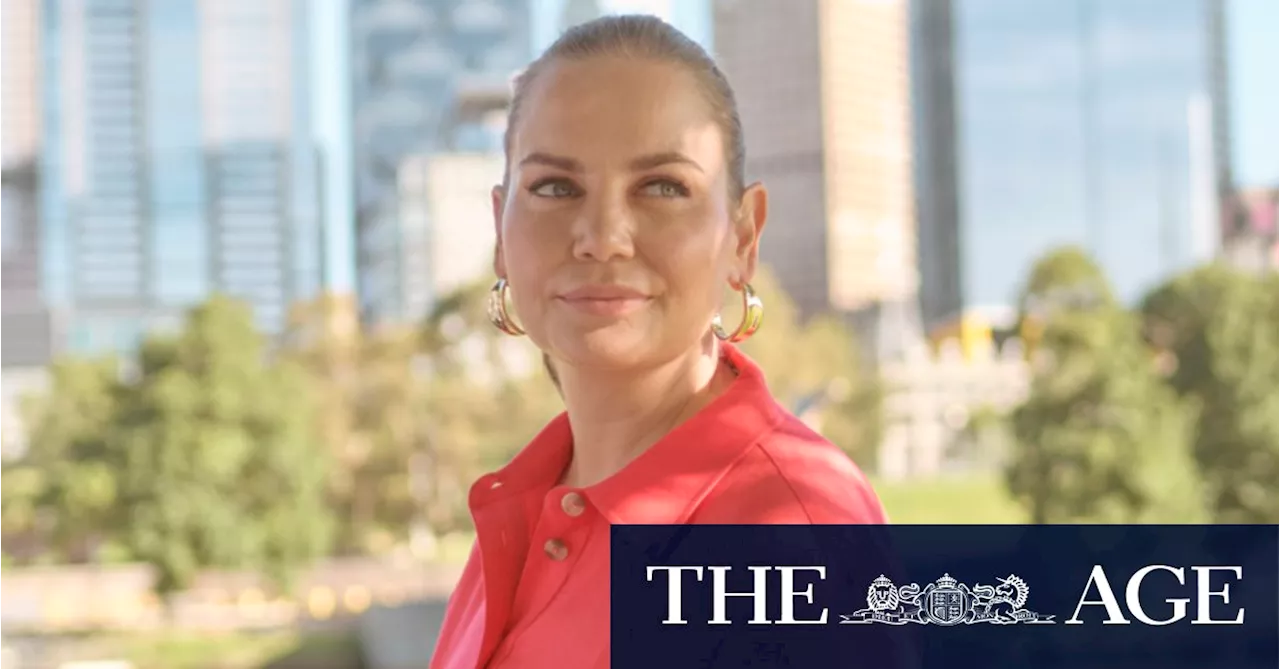 Jelena Dokic: Finding Contentment in the EverydayFormer tennis player Jelena Dokic shares her journey of finding peace and acceptance in the face of both triumphs and challenges. Her recent social media post highlighted her commitment to self-care and the importance of embracing limitations.
Jelena Dokic: Finding Contentment in the EverydayFormer tennis player Jelena Dokic shares her journey of finding peace and acceptance in the face of both triumphs and challenges. Her recent social media post highlighted her commitment to self-care and the importance of embracing limitations.
Read more »
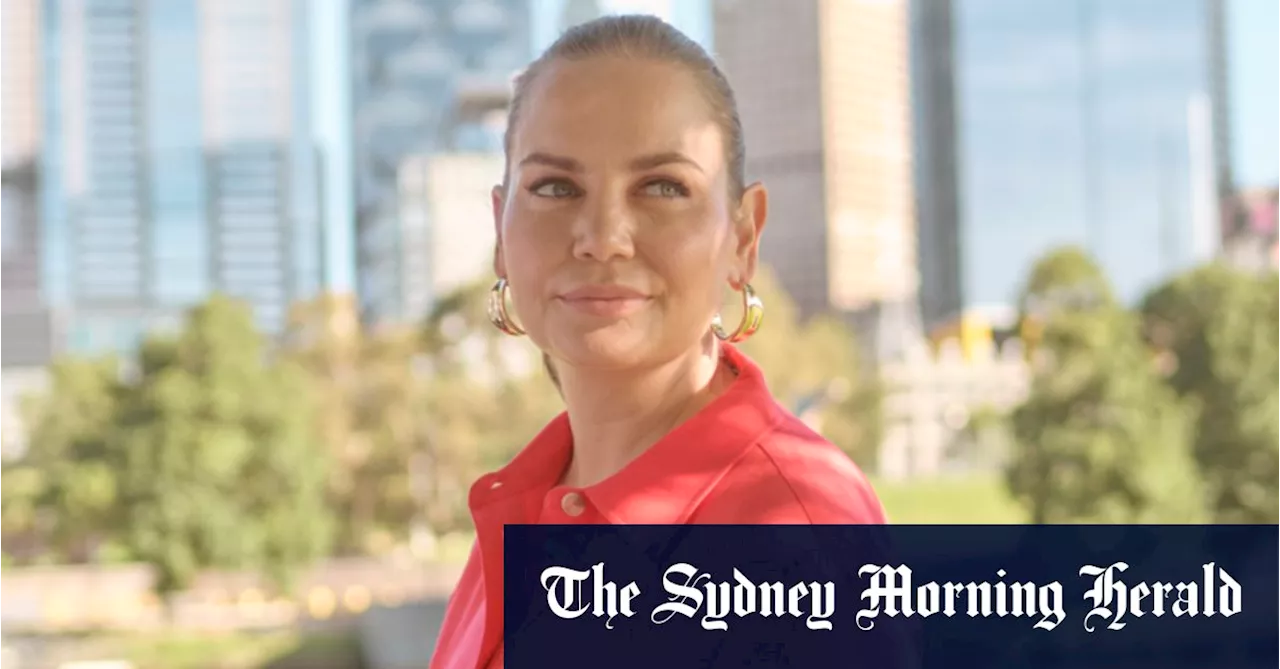 ‘Now I get it’: Jelena Dokic on tackling hardship – and her key morning routineThe former world No. 4 suffered incredible trauma during her career. Now she’s showing the world how it’s possible to not just survive it, but thrive afterwards.
‘Now I get it’: Jelena Dokic on tackling hardship – and her key morning routineThe former world No. 4 suffered incredible trauma during her career. Now she’s showing the world how it’s possible to not just survive it, but thrive afterwards.
Read more »
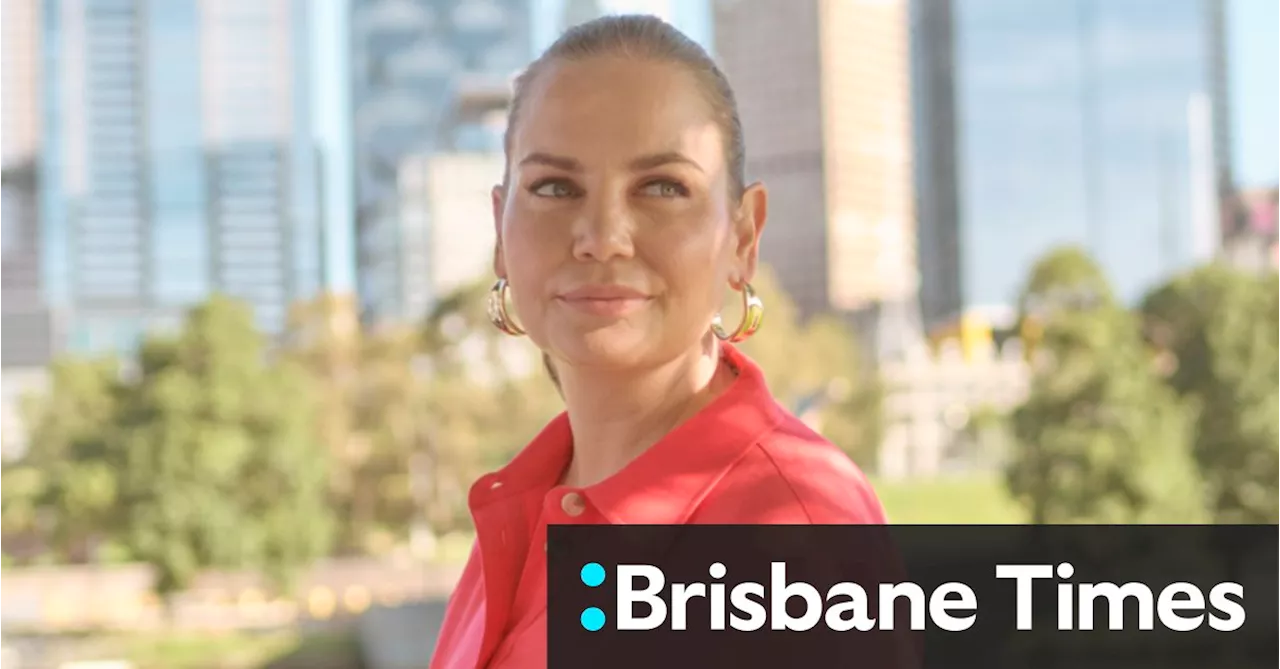 Jelena Dokic: Defiant ContentednessFormer tennis player Jelena Dokic reflects on her journey and the importance of self-care, sharing her experience of embracing rest and acknowledging limitations.
Jelena Dokic: Defiant ContentednessFormer tennis player Jelena Dokic reflects on her journey and the importance of self-care, sharing her experience of embracing rest and acknowledging limitations.
Read more »
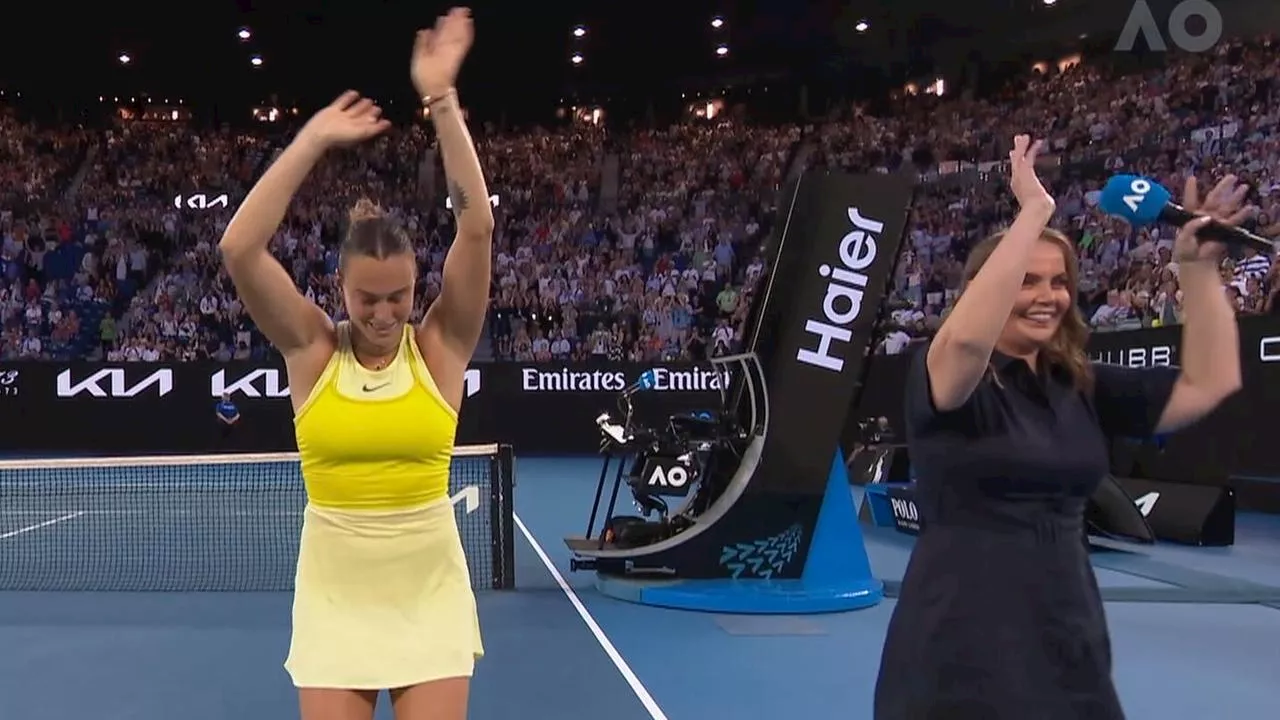 Aryna Sabalenka and Jelena Dokic Break Into Bizarre Post-Match DanceAryna Sabalenka and Jelena Dokic surprised viewers during a post-match interview at the Australian Open, breaking into an impromptu dance routine.
Aryna Sabalenka and Jelena Dokic Break Into Bizarre Post-Match DanceAryna Sabalenka and Jelena Dokic surprised viewers during a post-match interview at the Australian Open, breaking into an impromptu dance routine.
Read more »
 ‘Really close to retirement’: World No.1 makes shock reveal in middle of Aus Open defenceTennis: Jelena Dokic has convinced Aryna Sabalenka to perform her post-win dance in front of a packed Melbourne crowd after her round 1 Australian Open win.
‘Really close to retirement’: World No.1 makes shock reveal in middle of Aus Open defenceTennis: Jelena Dokic has convinced Aryna Sabalenka to perform her post-win dance in front of a packed Melbourne crowd after her round 1 Australian Open win.
Read more »
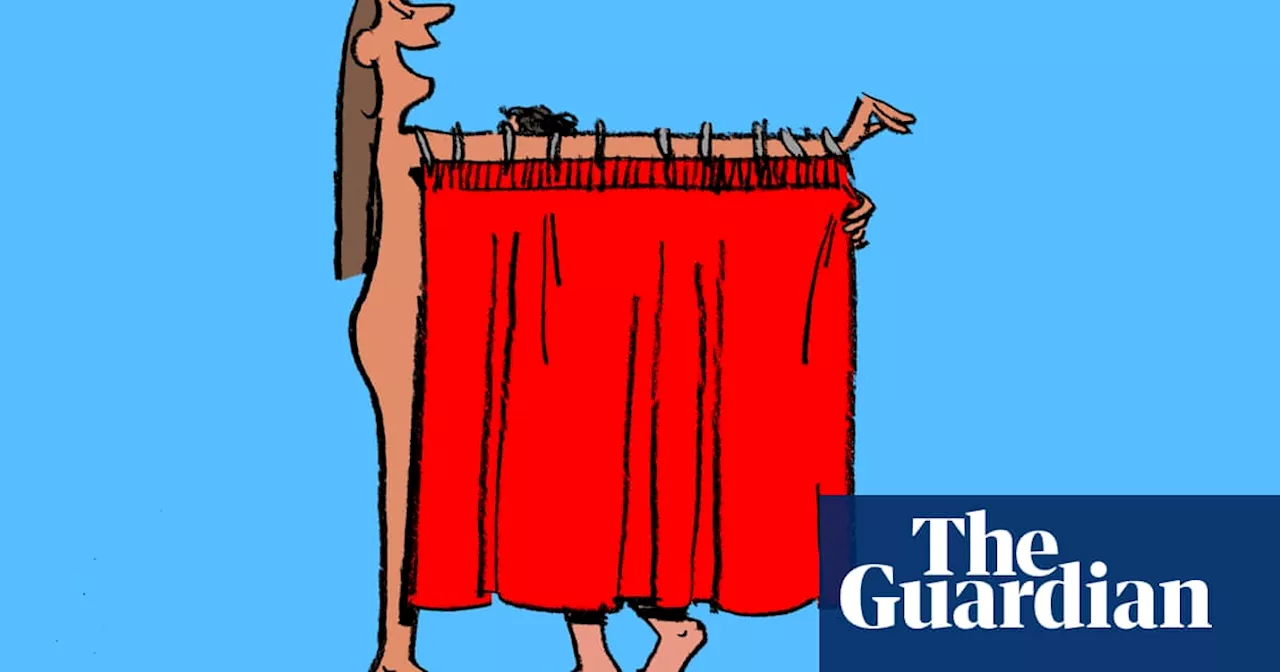 Ethical Non-Monogamy: Finding Authenticity Amidst ExploitationLachlan and Agnes navigate the complexities of ethical non-monogamy, highlighting the importance of transparency, respect, and shared values. They share their experiences of encountering both genuine and exploitative relationships within this framework, emphasizing the need for clear communication and boundaries.
Ethical Non-Monogamy: Finding Authenticity Amidst ExploitationLachlan and Agnes navigate the complexities of ethical non-monogamy, highlighting the importance of transparency, respect, and shared values. They share their experiences of encountering both genuine and exploitative relationships within this framework, emphasizing the need for clear communication and boundaries.
Read more »
